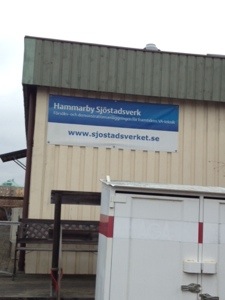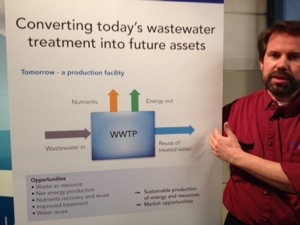Under fredagen deltog jag i en hearing i Bryssel anordnad av EU-kommissionen. Hearingen rörde ITS-frågor, d.v.s. intelligenta transportsystem, och vad EU kan och bör göra på området. Diskussionerna är omfattande inom EU kring hur man på bästa sätt skapar en all-europeisk reseplanerare för att förenkla resandet över landsgränser med olika transportslag och även om gemensamma biljettsystem oavsett land och färdsätt. Från Stockholm sidan menar vi att detta i grunden är en fråga som kan lösas om policyn om Öppen data tillämpas. Det var också de synpunkterna som jag framförde. Bifogar grundmanus som i princip innehöll det jag sa. Glädjande nog var det flera av de andra som deltog på hearingen som instämde i vikten av att ta utgångspunkt i strategin Öppen data ./
Ladies and gentlemen,
Stockholm is one of the fastest growing cities in Europe and the largest city in Scandinavia. The region stands for 45 % of Sweden’s population growth. This poses for opportunities as well as challenges. An increasingly densely populated city does for example not equal more square meters of road. So how do we get people from point A to point B smoothly? Part of the solution is information. And information and technology go hand in hand.
Stockholm is often considered a leader in adopting new technologies, setting new consumer trends. Many companies use Stockholm as a test market. When PWC rank international cities, in its report Cities of Opportunity, Stockholm comes out as no 1 regarding Intellectual capital and innovation. When it comes to transportation and infrastructure, Stockholm is in 5th place after cities such as Singapore and Tokyo. That is to say that we have a good foundation in order to face our challenges when it comes to transportation and using technology as a tool.
We use ITS in our Traffic Control Centre, where all traffic information is gathered and used on the website and in the app, which is available to everyone. It is a great tool when planning your trip, whether by car, by bicycle or as pedestrian. This tool can be used in the three mayor regions in Sweden and is in collaboration with the Swedish Transport Administration.
Although I am convinced that we need leadership from governments, we must also show leadership locally and encourage initiatives and an early deployment of best practices amongst cities. PWC considers Stockholm as the worlds´ best “digital economy” (that is to say the highest share of citizens and companies that truly use the Internet and use its advantages).
That is why we have an action plan for open data. As the first City in Sweden, we have invited companies and entrepreneurs to an open competition for new ideas and the development of ideas – The Open Stockholm Award in the year 2012 – using city data regarding parking, transports, construction, environment, air-quality and tourism, which are free and accessible through URLs/links. The result was remarkable and we received a lot of new innovative ideas and apps. We will continue to provide more open city data sources and we are already planning to organise the next competition in 2014.
An example of the great innovations that can come out of making data sources available is an app called Waze, in which you can share traffic information by reporting road accidents and road blocks. This app will automatically update your route based on the current information as well as memorize your usual routes, work hours and preferred routes. Friends can be notified on your estimated arrival time by sending a link that shows you driving route in real time. You can also find the nearest gas station along your route, with the current gas prices, which have been updated by other Waze-users. This is just one of many examples of apps that have been created by innovative entrepreneurs, who have made – and continue to make – life easier for people.
In addition to The Open Stockholm Award, we are also in the midst of a new competition called Innovative Solutions, in which contestants will have the opportunity to develop innovative solutions regarding information on traffic disturbances to passengers/road users travelling to and from Kista, one the world´s leading ICT clusters situatyed in the north of Stockholm. This is due to the many infrastructure developments occurring in the area, causing disturbances in the traffic flow. This is the first pre-commercial innovation procurement in Sweden. Last week, diplomas were given to tree selected ideas that now will be futher developed and presented i late jun 2014. The ideas are different technical innovations, one gives you an overview of the present traffic situation based on a map. The second is an app and mobile webb solution that gives you traffic information depening how you commute. The third is a mobile application that you can talk to, get information re traffic, congestion, timetables.
Stockholm City have a fibre network, which is accessible to over 90 % of the population and hence all around the city. Today it is the world´s largest fibre network with a speed of 1.000 Mbit/s. We are now looking at the possibility of connecting street corners around the city to our fibre network in order to measure everything from traffic flows to air quality in an effective and more simple way than today.
These are just a few examples of what´s going on in Stockholm. But more can, and has to, be done. With such a level of intellectual capital in Stockholm, and by using a Open Data strategy, we have all the potential of coming up with new technical solutions. By doing this and by networking with other countries, we will open up for a rapid development focused on services useful for the citozens of Europa.
Thank you.




